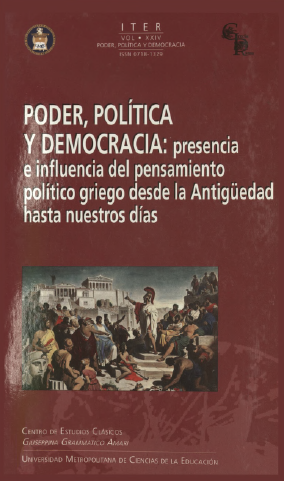Main Article Content
May 10, 2022
Abstract
Attic tragedy deals with myths, pa rticu la rly th e ones in the Theban and Trojan
Cycles, in order to make one reflect on highly topical subjects in Greek society at
that time, and on troubles affecting man in general. Different expressions of political
power are present in Aeschylus’ oeuvre, an d despite claims always made that
Sophocles shifts attention to the individual a n d family, works like Antigone and even
Oedipus have made a great impact on rethinking tyrannical power later. However,
there are only a very few modern works being based on Sophocles’Ajax, and the
critics usually study the tragedy, focusing on other aspects. That is why it is very
significant that the Cuban playwright Reinaldo Montero -whose version of Medea
made him famous in 1996, after winning the Italo Calvino Prize, and who wrote his
own version of Antigone in 2009- revisited the Trojan myth and Sophocles’tragedy in
order to write his Ajax in 2013 that was just premiered in 2016 by the name of Ajax
and Cassandra . By means of figures established by that important event in Greek
mythology, and by Attic tragedy, Montero brings to light a highly topical subject
regarding secrets had and wiles used by power holders, by stressing the role played
by poetry in the past and by mass media nowadays, and shows how today’s culture
has received classical antiquity.


